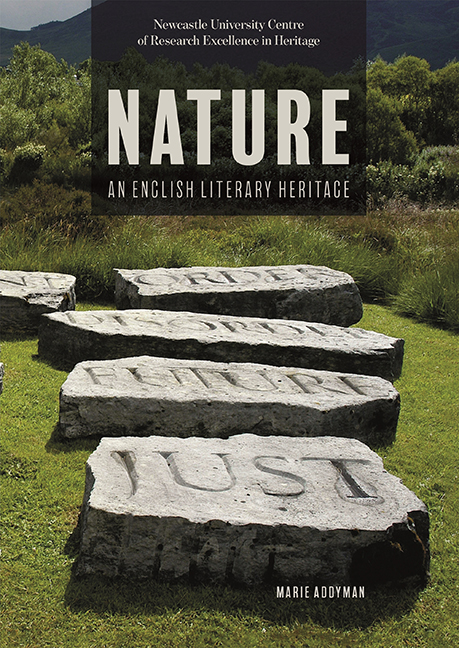Book contents
- Frontmatter
- Dedication
- Contents
- Acknowledgements
- Preface
- Introduction: Infected Minds
- I Nature as (A)morality and Mortality in Early Modern England
- II Living the Wild Life in the Nineteenth Century
- III Nature and History: Towards the Anthropocene
- Afterword: Apokalypsis
- Bibliography
- Index
- Previous Titles
- Frontmatter
- Dedication
- Contents
- Acknowledgements
- Preface
- Introduction: Infected Minds
- I Nature as (A)morality and Mortality in Early Modern England
- II Living the Wild Life in the Nineteenth Century
- III Nature and History: Towards the Anthropocene
- Afterword: Apokalypsis
- Bibliography
- Index
- Previous Titles
Summary
HEAT IN CYNDERS
Contemporary theorists are exercised by the question whether nature is served best by being considered in temporal terms or in spatial ones. This is a debate in which ‘literature's transgressive social function’ – its capacity to undercut the complacent platitudes or certitudes of a given culture – is seen as playing a key role (Goodboy 2014, 61 seq). But the sixteenth-century love poems and plays considered in the last chapter seemingly have not asked whether nature qua nature is most truly envisaged in terms of space or time. Yet this question not only became a major concern for their successors but was already an important preoccupation in the writings of English Renaissance poets, playwrights and essayists, as this chapter seeks to demonstrate. As always, the double mirror operates: on the one hand the capacity of nature to be seen in either perspective (space or time) enriches the literary tradition; on the other, individual cultural-literary choices illuminate how a given society sees, and has seen, those aspects of a natural heritage. This is an ancient crux, intimately related to how various literary pathetic fallacies have simultaneously comforted and challenged the reader, particularly when nature is perceived essentially as process and mortality. Robert Pogue Harrison, attempting to move Toward a Philosophy of Nature, spells out the grim necessity underlying culture as
the ritualised institution of the irony that puts us at odds with nature. To say it otherwise, I am at odds with my death. I am cursed by an awareness that nature's demand doesn't answer my demand that my having been born and my being here makes a difference that makes sense to me (Harrison 1996, 435).
Or, as a Guardian crossword put the issue more succinctly: Clue: ‘human’; Answer: ‘mortal’ (Guardian 28 March 2019). In contrast to our obsession with technological time-keeping, and long before twentieth-century analyses of the relationship between time, nature and history, early modern writers did impress upon the natural world their vision of its temporality. This came to include for them, as most famously for the seventeenth-century French mathematician Pascal (1623–62), the wonder and terror of space's enormity. There was, inevitably, a variety of responses to the unassailable fact of death and therefore to the challenge of how literature might incorporate as culturally acceptable the contrast between human nature as essentially finite with the abiding but ambiguous presence of the non-human (or inhuman) world.
- Type
- Chapter
- Information
- Nature: An English Literary Heritage , pp. 49 - 74Publisher: Boydell & BrewerPrint publication year: 2021

